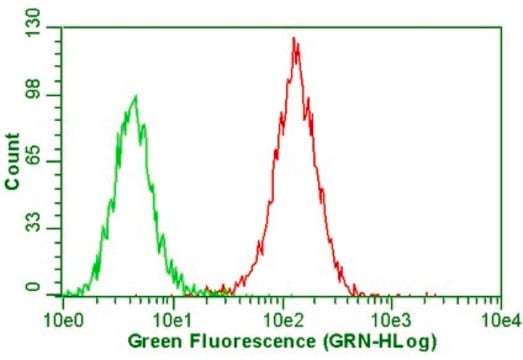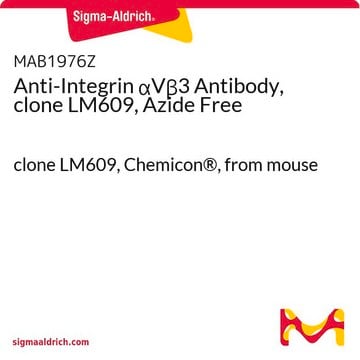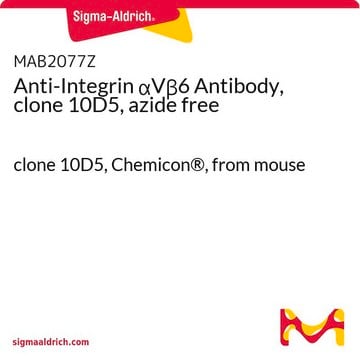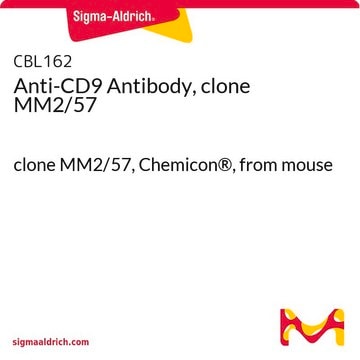MAB2019Z
Anti-Integrin αVβ5 Antibody, clone 15F11, Azide Free
clone 15F11, Chemicon®, from mouse
Synonym(s):
MAB2019
About This Item
FACS
ICC
IP
flow cytometry: suitable
immunocytochemistry: suitable
immunoprecipitation (IP): suitable
Recommended Products
biological source
mouse
Quality Level
antibody form
purified immunoglobulin
antibody product type
primary antibodies
clone
15F11, monoclonal
species reactivity
human
manufacturer/tradename
Chemicon®
technique(s)
ELISA: suitable
flow cytometry: suitable
immunocytochemistry: suitable
immunoprecipitation (IP): suitable
NCBI accession no.
UniProt accession no.
shipped in
wet ice
target post-translational modification
unmodified
Gene Information
human ... ITGAV(3685)
Specificity
Immunogen
Application
Flow Cytometry: MG-63 cells have been harvested, blocked for 20 minutes at 4C in 20% normal human serum then washing in medium containing 10% FBS. 5X10E5 cells per tube were subsequently incubated with primary antibody for 30 min on ice, washed with medium, and incubated with fluorescent-conjugated secondary antibody.
Immunocytochemistry: 15μg/mL dilution for immunostaining of cells adhering to vitronectin-coated coverslips and fixed in 1% paraformaldehyde containing 0.5% Triton X-100 for 20 minutes. Incubation with MAB2019Z antibody for 30 minutes at 22C, followed by detection with a fluorescein-conjugated secondary antibody.
ELISA
Optimal working dilutions must be determined by end user.
Cell Structure
Integrins
Physical form
Storage and Stability
Legal Information
Disclaimer
Not finding the right product?
Try our Product Selector Tool.
recommended
Storage Class Code
12 - Non Combustible Liquids
WGK
WGK 2
Flash Point(F)
Not applicable
Flash Point(C)
Not applicable
Certificates of Analysis (COA)
Search for Certificates of Analysis (COA) by entering the products Lot/Batch Number. Lot and Batch Numbers can be found on a product’s label following the words ‘Lot’ or ‘Batch’.
Already Own This Product?
Find documentation for the products that you have recently purchased in the Document Library.
Our team of scientists has experience in all areas of research including Life Science, Material Science, Chemical Synthesis, Chromatography, Analytical and many others.
Contact Technical Service








